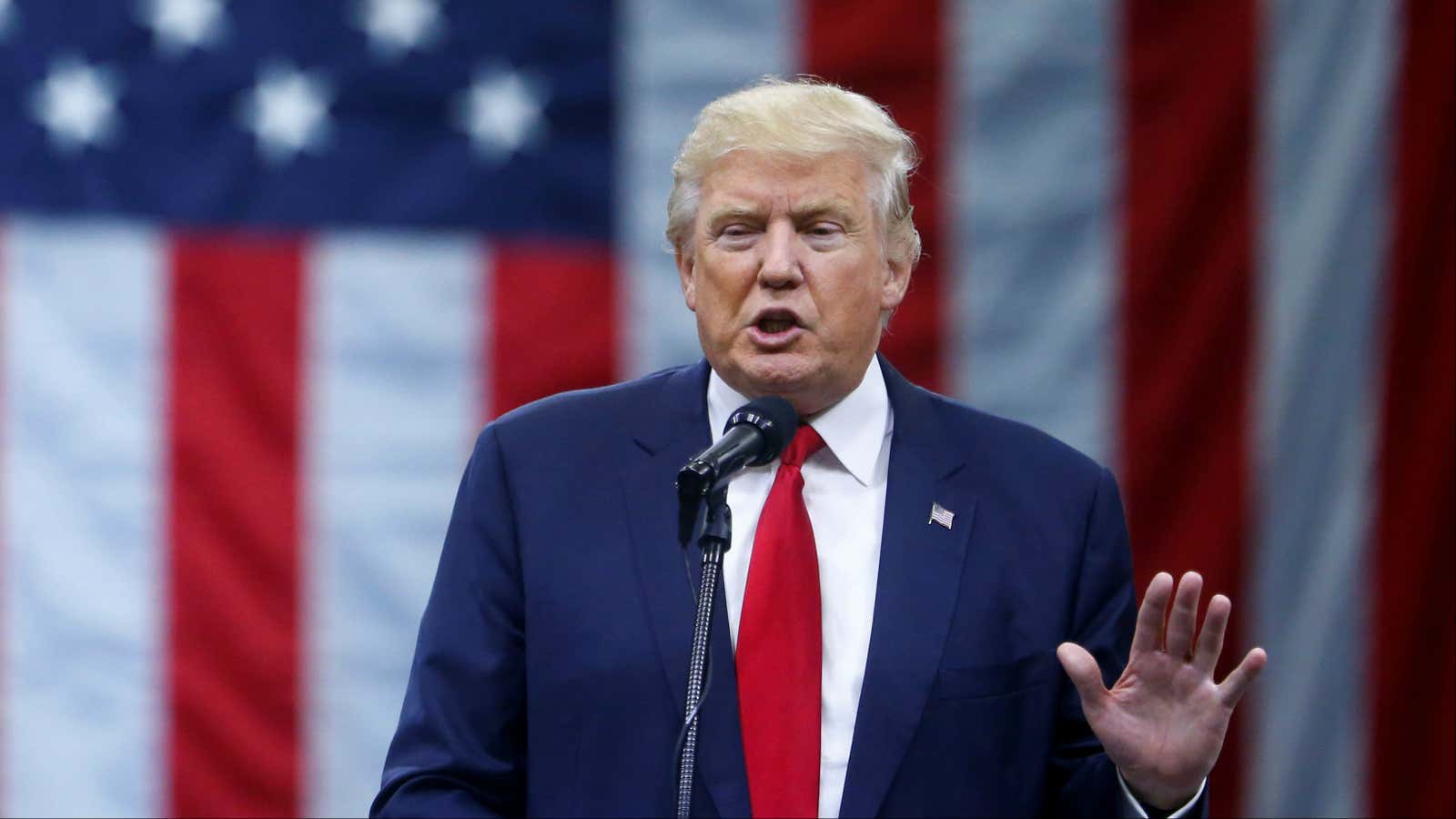When my 7-year-old daughter asked me why I wasn’t voting for Donald Trump, this is how I responded:
“Because he is a bully,” I said. He attacks people who disagree with him. He objectifies women, is overtly racist, and doesn’t see 310 million guns in America as a problem.
Who, she then wondered, would ever support such a person?
Since the answer to that question is at least 40% of the country, including some of her own extended family, the irony was clear: I was dismissive of Trump in an arrogant, Trumpian kind of way, failing to offer a thoughtful, or persuasive argument for why I think he is dangerous and unfit for the presidency.
For months, I have engaged in endless discussions with like-minded people in the US and London, where we live, about Trump. The conversations were painfully predictable: Trump would do something outrageous, like wonder whether President Obama had willfully failed to stop the Orlando shootings for mysterious reasons (“there’s something going on,” he said), or tell Megyn Kelly that she must have blood coming out of her whatever for asking why he called women he didn’t like “fat pigs,” “dogs,” “slobs,” and “disgusting animals.”
We would curse at the absurdity of it all, lament the state of global political discourse, and return to our self-curated, liberal media echo chamber to reinforce our outrage and despair.
But my daughter wanted to know how people she and I both love could support such fundamentally different ideas and values. She wanted to understand something and I was offering up empty accusations.
Seven-year-olds deserve better, as do the rest of us.
If we want to raise kids who won’t support Trump’s brand of dumbed-down, insult-driven discourse, we need to not offer it up for our kids to imitate (actions always speak louder than words, so the parenting sages say). They need to learn how to consider two sides of an argument and refrain from scorched-earth tactics. They have to tolerate different views, so that they can be better than the bullies and their mean-spirited intolerance.
So I tried a different tactic. I channeled my pro-Trump family members and told my daughter that a lot of people thought the country was going wildly off course. They felt like they got in a bus headed to Cornwall and ended up in Moscow, and they were disoriented, angry, and sad about being in the wrong place. They wanted more for the country they loved and they thought Trump might give it to them.
I told her she should ask them to explain why they supported Trump and I suggested she listen to what they said. I told her to be curious, and considerate, a strategy a hostage negotiator offered to me for contentious family conversations, but that would serve all Americans well right now.
We are living in a time where authenticity is held in high regard by people who only tolerate their own version of tolerance. College students refuse to engage in dialogue about eternally perplexing issues, which are meant to be discussed and debated in college. Liberals are tolerant of everyone as long as they are not conservative or supportive of Trump.
It’s no mystery how we got to a place where each side seems to construct its own facts and narratives which, as George Saunders writes, “draw upon non-intersecting data sets an access entirely different mythological systems.”
But it would be a mistake not to teach our kids how to do better. Do we say Trump’s an asshole and an idiot, meeting his endless name-calling with more name-calling? I believe Trump should be feared, but that’s a conversation to be had, not a sound bite to be hurled.
Democracy requires dialogue and debate: if two opposing sides can’t speak to each other, including members of the same family at a dinner table, it sends a powerful message to children about what that democracy should look like. I want my kids to grow up in a world where political discussion is vigorous and substantial, but most importantly, one where it is had.
